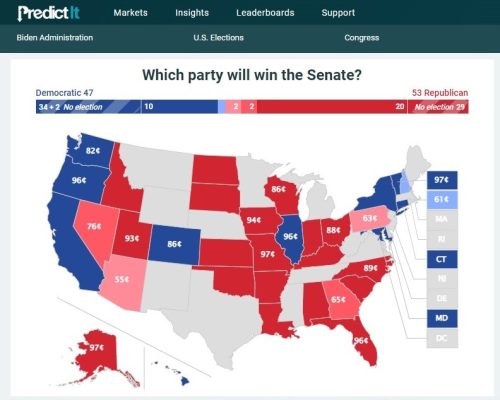Theodore Dalrymple notes that inflation is more than a purely economic phenomenon…it also has profound social and psychological effects.even characterological effects:
For one thing, inflation destroys the very idea of enough, because no one can have any confidence that a monetary income that at present is adequate will not be whittled down to very little in a matter of a few years. Not everyone desires to be rich, but most people desire not to be poor, especially in old age. Unfortunately, when there is inflation, the only way to insure against poverty in old age is either to be in possession of a government-guaranteed index-linked pension (which, however, is a social injustice in itself, and may one day be undermined by statistical manipulation by a government under force of economic circumstances, partly brought about by the very existence of such pensions), or to become much richer than one would otherwise aim or desire to be. And the latter turns financial speculation from a minority into a mass pursuit, either directly or, more usually, by proxy: for not to speculate, but rather to place one’s trust in the value of money at a given modest return, is to risk impoverishment. I saw this with my own father: once prosperous, he fell by his aversion to speculation into comparative penury.
Reminds me of something written by Sebastian Haffner, who grew up in Germany between the wars. Discussing the great Weimar inflation, he says:
Anyone who had savings in a bank, bonds, or gilts, saw their value disappear overnight. Soon it did not matter whether it ws a penny put away for a rainy day or a vast fortune. everything was obliterated…the cost of living had begun to spiral out of control. ..A pound of potatoes which yesterday had cost fifty thousand marks now cost a hundred thousand. The salary of sixty-five thousand marks brought home the previous Friday was no longer sufficient to buy a packet of cigarettes on Tuesday.
The only people who were able to survive financially were those that bought stocks. (And, of course, were shrewd or lucky enough to buy the right stocks and to sell them at the right times.)
Every minor official, every employee, every shift-worker became a shareholder. Day-to-day purchases were paid for by selling shares. On wage days there was a general stampede to the banks, and share prices shot up like rockets…Sometimes some shares collapsed and thousands of people hurtled towards the abyss. In every shop, every factory, every school, share tips were whispered in one’s ear.
The old and unworldy had the worst of it. Many were driven to begging, many to suicide. The young and quick-witted did well. Overnight they became free, rich, and independent. It was a situation in which mental inertia and reliance on past experience was punished by starvation and death, but rapid appraisal of new situations and speed of reaction was rewarded with sudden, vast riches. The twenty-one-year-old bank director appeared on the scene, and also the sixth-former who earned his living from the stock-market tips of his slighty older friends. He wore Oscar Wilde ties, organized champagne parties, and supported his embarrassed father.
Haffner believes that the great inflationparticularly by the way it destroyed the balance between generations and empowered the inexperienced younghelped pave the way for Naziism.
In August 1923 the dollar-to-mark ratio reached a million, and soon thereafter the number was much higher. Trade was shutting down, and complete social chaos threatened. Various self-appointed saviors appeared: Hausser, in Berlin…Hitler, in Munich, who at the time was just one among many rabble-rousers…Lamberty, in Thuringia, who emphasized folk-dancing, singing, and frolicking.
The inflation was eventually brought under control:
Then a miracle happened. “Small, ugly grey-green notes” appeared, with “One Rentenmark” written on them. The small numbers on these notes belied their value. You could use them to buy goods which had previously cost a billion marks. And, most amazingly, they held their value. Goods which had cost 5 Rentenmarks last week would also generally cost 5 Rentenmarks next week.
But the after-effects of the great inflation lived on.
There are two excellent novels, both by author Hans Fallada, which portray the psychosocial impact of the Weimar inflation and its aftermath
Wolf Among Wolves is set in the worst period of the inflation. The protagonist, Wolfgang Pagel, is a well-meaning but rather irresponsible young man trying to make his way in a society with rising social and economic chaos. Can Wolfgang grow up to be a responsible adult?..and can he survive surrounded by wolves without himself becoming a wolf? I reviewed the book here.
Little Man, What Now? is set in a somewhat later time period, 1932. The great inflation of Weimar has come and gone, but the psychological damage as well as the economic damagestill lingers. Johannes and Emma, known to one another as Sonny and Lammchen, are a likeable young couple who marry when Lammchen unexpectedly becomes pregnant. Their world is not the world of Weimar’s avant-garde artists and writers, or of its risque-to-outright-degenerate cabaret scene. It is far from the world of a young middle-class intellectual like Sebastian Haffner. Theirs is the world of people at the absolute bottom of anything that could be considered as even lower-middle-class, struggling to hold on by their fingernails. Here’s my review. There was also a pretty good American movie made based on the book, review here
The Weimar inflation was an extreme case, of course, and we are unlikely to see anything nearly as severe. But, as Dalrymple notes, even less-catastrophic levels of inflation tend to have malign effects. The Biden administration and the Democratic Congress seem remarkably unconcerned about these effects, or with the socially-destructive effects of so many other parts of their total policy set.
On the other hand, if inflation gets sufficiently bad, kids can make kites out of currency. And, if energy prices continue their climb upward, devalued currency could be used for heating fuel.
